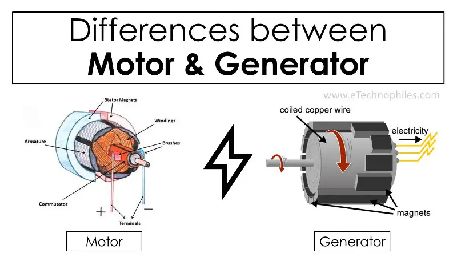Motors and generators are two different devices that use electricity and magnetism to perform various tasks. In this article, we will explore the differences between these two devices.

The main difference between motors and generators is their function. Electric motors convert electrical energy into mechanical energy, while generators convert mechanical energy into electrical energy. Electric motors use electrical energy to generate a magnetic field to turn a rotor, while generators use mechanical energy to turn a rotor to generate electric current.
Another notable difference between the two devices is their design. A motor has a stator and a rotor while a generator has an armature, a rotor and a stator. The rotor in a generator usually consists of permanent magnets or windings, while the rotor in an electric motor usually consists of strips of copper or aluminum.
In terms of efficiency, electric motors and generators exhibit different characteristics. Electric motors are generally more efficient than generators because they convert electrical energy into mechanical energy, a more direct process. In contrast, a generator converts mechanical energy into electrical energy, which causes energy loss through heat and other factors.
Finally, another notable difference between the two is their usage. Electric motors are commonly used in a variety of appliances, vehicles and industrial equipment. Generators, on the other hand, are commonly used to generate electricity in a variety of settings, including homes, businesses, and remote locations without a grid.
In conclusion, electric motors and generators are two distinct devices with significant differences in function, design, efficiency, and use. Knowing these differences can help individuals choose the right device for their specific needs.
Post time: May-31-2023





